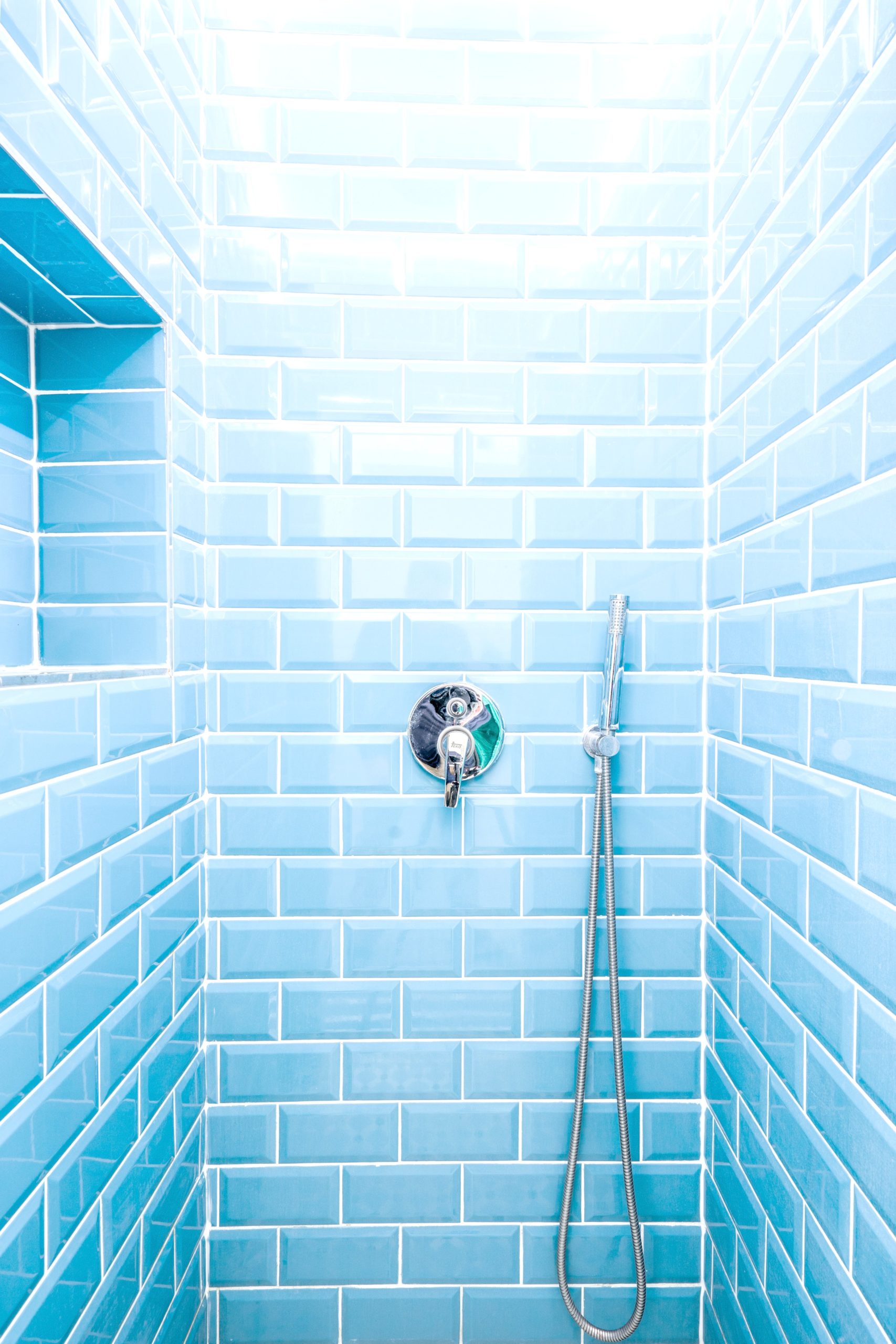Stress can have a huge psychological, physical and emotional impact on men’s sexual health. Chronic stress, ongoing stress over an extended period of time, can affect testosterone production, resulting in a decline in sex drive or libido, and can even cause erectile dysfunction or impotence in severe cases.

Whether you are dealing with erectile dysfunction , premature ejaculation or a low libido, there should be no shame in sharing your sexual health stories. And yet we choose to ignore any sexual health issues that we may have (regardless of gender) because we might feel ashamed, embarrased or have performance anxiety.
With an estimated 1 in 10 men having a sexual health related problem, performance issues or anxieties are a lot more common than you may think. Men might worry about how they perform in bed, if they ejaculated too quickly and if they gave their partner pleasure. They may also find it difficult to maintain an erection when they are overly stressed and find it hard to perform sexually.

Although sex is a great stress reliever, a good form of excercise and a positive bonding excercise for you and your sexual partner, it also comes with a list of worries. Am I good enough? Did I satisfy them? Why can’t I orgasm with my partner? Granted women have similar worries, but there is a stigma around men’s sexual health, that can stop them from having full sexual disclosure.
Archaic sayings like ‘real men don’t cry’, ‘man up’ and ‘just get on with it’ stops men from getting the closure that they need, often allowing sexual health issues to bottle up, because there is a real sense of shame. But why are you ashamed? Your sexual health is important and so are you. Just because stuffy society archetypes are telling you to ‘ignore your problems’ and just roll with it, dosen’t mean you should.

I know it isn’t easy being frank about sexual performance, but in or out of a relationship, it’s important that you maintain a healthy dialogue around sex and sexual health. Your sexual health shouldn’t be a taboo. It’s time to break the cycle and speak out about sexual health. Have a frank discussion with your loved ones, break down the stigma and normalize men’s sexual health, making it part of the conversation.
From exploring treatment options such as Tadalafil to talking to a medical health professional, seeing a psychosexual therapist for help or using an Online Pharmacy to brush up on your sexual knowledge, you are not on your own. In fact now more than ever we have a wealth of knowledge at our finger tips, and there’s no need to be kept in the dark. Find out below how stress can impact men’s sexual health and the steps you can take to combat it right now.

Stress Can Have An Impact On Erectile Dysfunction
Mental health conditions like stress and anxiety can affect how your brain signals your body’s physical response. In the case of an erection, stress and anxiety can interrupt how your brain sends messages to the penis to allow extra blood flow. When you are feeling stressed- whether that be personally, professionally or psychologically, you can have sexual performance issues as a result.

But in order to understand stress and its impact on men’s sexual health, we must first define what erectile dysfunction is. Put simply, ED is when a man cannot get or keep an erection that stops him from having sexual intercourse or engaging in sexual acts like oral. The cause can be physical or psychogical, and usually increases with age.
Men between the ages of 40-70 are most prone but younger men can be affected too. In fact 40% of men are affected by erectile dysfunction at age 40, and nearly 70% of men are affected by ED by the time they turn 70. Alongside age, other common risk factors include heart disease, obesity and diabetes which can cause ED.

Stress and anxiety about ED can also contribute to a cycle of ongoing ED. Experiencing ED can lead to behavioral changes that contribute to anxiety and incidences of ED. The reasons for ED vary per age group, but psychogically, stress at work, financial burdens, a loss of a loved one or PTSD can increase the risk for sexual dysfunction. Other reasons can be relationship problems and conflict, depression and anxiety.
There are three main types of ED: Psychological ED, personal and professional stress (as discussed above) and physical impotence. Physical impotence tends to be the most common cause of ED in older men, but this can also be present in younger men too. Despite being a ‘so called taboo topic’, having ED is nothing to be ashamed of, and it is important to explore the treatment options that are available to you.

How To Get Help For Erectile Dysfunction
You might be wondering how you can get help during a pandemic, but there are a wealth of options despite the restrictions that are in place. First things first, you must discuss your treatment options with your doctor, via a telephone consultation to pinpoint whether this is a psychological or physical issue.
They can help you get to grips with your diagnosis, give you useful websites that can help you do more research on ED, and decide what the best course of treatment might be. This might be medication to maintain erections like viagra, sexual therapy, or a face to face visit when lockdown restrictions are over to give you a one to one examination to figure out what the best course of action might be.

You might have a combination of treatments to target your ED and it might be a sexual health issue that you have on a short term or long term basis. Most forms of psychological ED go after a short period of time but impotence or physical ED can be a lot harder to get rid of.
To help you understand what is triggering your ED, there are a number of different types of therapy available that allow you to talk to an expert and discuss how it makes you feel. Because of COVID-19 face to face appointments aren’t happening, but as someone who has CBT therapy herself, they might conduct your treatment over the phone, set you ‘homework’ and ‘assignments’ and even use Zoom.

Specifically targeted therapies like Sex Therapy and Sexual Anxiety Therapy, helps you connect with therapists who will understand. They are specially trained to deal with men’s sexual health and will show you that there is no shame in being open about your sex life. With the latter, your therapist will not only educate you on the ins and outs of ED, but they will also address the emotional root of the problem too.
Stress Can Cause Premature Ejaculation

Alongside Erectile Dysfunction, emotional strain in any area of your life can play a role in premature ejaculation, limiting your ability to relax and focus during sexual encounters. But what is premature ejaculation? Premature ejaculation is one of the most common bedroom performance issue that can impact men’s sexual health. It is when the male will ejaculate too quickly during sexual intercourse.
While there is no set guideline that states how long sex should or shouldn’t take, some men might feel that they are not lasting as long as they feel that they should, are not giving their partner enough pleasure or are worried how their sexual performance might be perceived by others. At some point all men will have had premature ejaculation, which can happen occasionally or all the time.

If it does not happen often, this could be down to not having had sex in a while, wanting ‘sex to be out of the way because of pressure to perform’ or even because of problems in sexual relationships. If it happens often, you might want to consult with a doctor to discuss the appropriate course of action. There are a number of factors that can cause premature ejaculation:
While common physical causes can include an overactive or underactive thyroid or prostate problems, psychological issues can include stress, depression, sexual anxiety, sexual trauma or even biological reasons. For example when I was younger, I found it difficult to orgasm with a boyfriend or sexual partner and for so many years I wondered what was wrong with me seeing as I could ‘orgasm in private’.

I came to the realization that I found it hard to ‘let go’ and ‘let someone in’ because sub-consciously I was terrified to break my walls down. When I learned to let go, love myself and be open with communication, this in turn helped my body feel free too. And it can be the same for some men who might also find it hard to not be self-conscious with a partner because they don’t know how to let go.
Trauma has a huge impact on how you view sex, and as someone who has dealt with extensive trauma, it can be tough to speak with your partner because there is not a huge amount of conversation that is going around in regards to sexual health but it’s a narrative and dichtomy that we have to keep pushing. If you don’t communicate with your partner about the issues you are facing they could take it personally.

By being open and honest, it might actually help you feel more confident in the bedroom and find ways to spice up your sex life that will help you get your mojo back. There are also a number of other ways that you can treat premature ejaculation:
- Talk it out. As I said earlier when you communicate how you feel you break barriers and this helps you feel free sexually, emotionally and physically.
- Take breaks during sex, and take it slow. Focus on foreplay, and don’t rush taking your time to savour the moment.
- Masturbate an hour or two before sex. This might help you slow down because you have already ‘finished’.

Like ED, you might also benefit from a form of sexual therapy, whether you want therapy just for yourself or are looking to try out couples therapy. When you are in a long term relationship, don’t be resistant to therapy because it can well and truly save a relationship. Not only would it encourage you to explore the root of the problem but it will also allow you to be open and honest with your partner in a judgement free space. The therapist would allow each party to explain how the sexual issue is affecting them and will encourage you to explore solutions.
Stress Can Decrease Your Sex Drive And Cause A Low Libido
A loss of libido (sex drive) is a common problem that affects many men and women at some point in their life. In men physical issues that can cause a low libido can include low testosterone, prescription medicines, too little or too much exercise, and alcohol and drug use.

Like other sexual health performance issues, psychological factors such as depression, stress and relationship conflict can decrease your sex drive.It’s often linked to relationship issues, stress or tiredness, but can be a sign of an underlying medical problem, such as reduced hormone levels. For example 4 out of 10 men aged over 45 have low testosterone levels. Testerone fuels sex drive and muscle mass, but it also regulates mood and bone strength. When the levels fall this can have an impact on a man’s performance in the bedroom.
When you have a reduced interest in sexual activity or sexual thoughts, this is normal and can happen to us all. Although it happens to a lot of men, very few speak out about it publicly because their identity is often ‘typecast’ around this specific version of masculinity that is ‘manly’ and fits into this pigeonholed ideal of the ‘male form’. But guess what, that’s not real.

Virility does not define who you are as a person and men can have a low sex drive for a number of reasons as listed above. Sometimes your lifestyle might also have an impact on your libido. For example leading a sedentary lifestyle, eating badly, sleeping poorly or having bad habits can all have an impact on your sexual performance because it reduces your energy levels. After all when you are tired sex can be a no go.
In order to treat a low libido you first have to identify the cause. For example if you are leading a bad lifestyle, think about adopting some new lifestyle changes. This might be cutting down on smoking and drinking, it might be eating a cleaner and more nutritious diet and even going bed at an earlier time. When you take care of yourself it helps you deal with stress rationally and can decrease performance issues.

In extreme cases you might need medication, or to change your course of medication if you are already taking some. Sometimes the medications that we are on can have an impact on our sex drive, whether that be increasing or decreasing it. Others might seek testerone replacement therapy-although it is controversial because this is a normal sign of aging- and of course counselling.
The right treatment depends on the person but remember men’s sexual health can be impacted by having a low libido and decreased sex drive, so its important to speak out, seek help if you need it and share your stories with others. After all, after the age of 40 a man’s sex drive does decrease by 1-2% each year, so it is normal to not feel like being as sexually active as you once was.
Stress Can Impact Your Sexual Relationship With Others

Last but not least is the impact that stress can have on your sexual relationship with your partner/partners. We all know that stress can affect sexual desire because when you react to stress, your body goes through a fight or flight response which can include symptioms like a raised heart rate, dizziness and erratic breathing.
Your biggest sex organ is your brain so naturally it should come as no surprise that a mental block can impact your sex life and your relationship with others. This is becasue chronic stress can cause your body to produce too much of the hormone cortisol, which can lower your libido, and decrease your desire to have sex. When you are in a relationship, you might feel like you are disappointing them by not ‘being in the mood’, and your partner in turn might feel like they have done something wrong, you don’t find them sexy or are bored.

This is why it is so important to speak out about the impact of stress on men’s sexual health, because you shouldn’t suffer alone. Instead work together to find out why you are stressed and what could be done to alleviate your stress to have a more fufilling sex life. After all, if partners can’t manage stress together, then the whole relationship will ultimately suffer. A relationship without communication is a big no-no.
It could be that you are in a toxic environment and are worried about leaving your job. Or perhaps you have been arguing a lot with your partner recently and you don’t know how to break the cycle. You might be having small arguments that build up over time until they are blown out of proportion and you hold on to feelings of bitterness, resentment and irritability.

Having a healthy outlet for your stress and taking time out for self-care can really help you feel on top of your game again. Whether that be taking a detox from social media, having a bubble bath with your partner, watching your favourite show or reading a book, find what makes you happy. While sex is a great stress reliever, you have to ensure you are taking that time out to truly relax and feel like yourself again.
It is also important to adopt simple changes, like creating a more balanced life so that your relationship and your sex life resumes as normal. While it is easy to think about major stresses like the loss of a loved one, financial burdens and mental health, don’t forget that small daily stresses can pile up over time. Whether that be not sleeping well, eating more junk than normal or being disorganized this can have an impact.

When you can re-organize your life, and adopt healthier habits like eating well, sleeping better and managing your time more effectively, this can have a positive impact on your sexual energy and your relationship. You can feel refreshed, make sex a priority in your life without seeing it as a chore and above all you can fall in love with your partner all over again.

What Other Ways Can Stress Impact Men’s Sexual Health?
*Please note this is a collaborative post but all thoughts are my own and are not affected by monetary compensation.
This is such a good topic to cover!